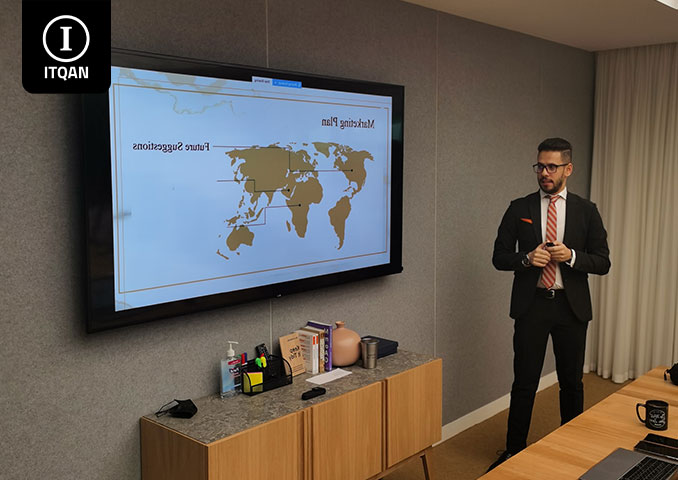Investing money in the United Arab Emirates is an attractive option for many investors, given the stable economic environment and economic diversity that the country offers. The UAE is one of the most attractive destinations for incoming funds, and it is a meeting place for business and trade at the global level. This country is considered a leader in the Middle East in various fields such as real estate, tourism, industry, and technology, making it a home for promising investment opportunities. In this article, we will discover the steps for investing in the Emirates and the advantages of investing in the Emirates.
But before embarking on the process Investing in the UAE Investors must understand the steps and procedures required. The investment process requires good planning and strategic thinking, which includes getting to know the local market, understanding local laws and regulations, and identifying promising economic sectors.
In this article, we will explore the steps to investing in the UAE and how investors can take advantage of the opportunities available there, as well as guidance on how to choose the right investment sectors and deal with local legal and financial factors. These steps will pave the way for investors to achieve sustainable success in their investment operations in the UAE.

Steps to invest in the Emirates
جدول المحتوى
ToggleInvesting in the UAE
The United Arab Emirates is considered one of the most attractive investment destinations in the Middle East, with its advanced infrastructure, diversified economy, and investment environment full of opportunities. The UAE is an ideal investment environment for startups and global investors, and there are several factors that make it an interesting destination:
First, political and economic stability: The UAE enjoys a stable political environment and wise leadership that supports stability and sustainable economic development, which increases investor confidence.
Second, economic diversity: The UAE has a diverse range of economic sectors such as oil and gas, tourism, technology, and financial services, which provides multiple investment opportunities for investors.
Third, advanced infrastructure: The UAE is characterized by a modern and advanced infrastructure, which facilitates investment and trade operations and helps achieve economic success.
Fourth, government investment policies: The UAE government adopts investment policies aimed at attracting capital and promoting investment projects, including providing tax, financial and administrative facilities to investors.
Finally, it represents Investing in the UAE An exciting opportunity to benefit from the region’s rapid economic growth, access a large and diverse consumer market, and enjoy the facilities and support of the local government.
Steps to invest in the Emirates
The United Arab Emirates is one of the most prominent investment destinations in the world, offering a stable and encouraging economic environment for both local and international investors. The UAE is characterized by great economic diversity and innovative investment policies that make it an ideal destination for achieving good returns on investment. In this article, we will review the steps Investing in the UAE in details:
- Market and Opportunity Study: Conduct in-depth research on the UAE market and the sectors available for investment. Identify promising opportunities and sectors with high demand.
- Setting a goal and plan: Clearly define your investment goals and develop a solid investment plan that includes financial and time goals and investment strategy.
- Find a local partner or consultant: Working with a local partner or consultant with experience can be valuable in understanding the local market and local laws and regulations.
- Obtaining the necessary licenses and permits: Some investment activities in the UAE may require obtaining licenses and permits from local authorities or regulatory bodies.
- Determine the investment and company structure: Decide whether you want to start a new company or invest as an individual or in an existing group of companies.
- Open bank account: Open a bank account in the UAE to manage investment funds and conduct financial transactions.
- Building a network: Build strong relationships with local partners, potential customers, government agencies, and other stakeholders.
- Performance monitoring and risk management: Monitor the performance of your investments regularly and update your strategy as needed. You should also manage risks carefully and take the necessary measures to protect your capital.
Investment opportunities in the UAE
In the UAE, there are many investment opportunities available that include various economic sectors and promising opportunities that investors can benefit from. Here are some of the prominent investment opportunities in the UAE:
- Real estate: Real estate is one of the most important investment opportunities in the UAE, as the real estate market is witnessing continuous growth and increasing demand for residential, commercial and hotel properties.
- Energy and Infrastructure: The UAE offers significant opportunities in the energy sector, including renewable energy and nuclear energy, as well as investment opportunities in infrastructure such as roads, ports and airports.
- Technology and Innovation: The technology and innovation sector is considered one of the emerging and promising sectors in the UAE, as there are many opportunities to invest in emerging and innovative companies.
- Education and training: The education and training sector in the UAE is witnessing significant growth, providing opportunities for investment in private schools, universities and vocational training centres.
- Tourism and Hospitality: Tourism and hospitality are vital sectors in the UAE, with the country attracting millions of tourists annually, providing investment opportunities in hotels, resorts and restaurants.
- Creative and cultural industries: The UAE provides an encouraging environment for investment in creative and cultural industries, such as arts, design and performance art.
- Agriculture and Food: The UAE offers investment opportunities in the agriculture and food sector, especially in the areas of advanced agricultural technologies and environmental sustainability.
Investment laws in the UAE
In the UAE, there is a set of laws and legislations that regulate the investment sector, and they are constantly evolving to enhance the investment environment and encourage business. Among the main laws for investment in the UAE are:
- Foreign Investment Law: This law specifies the conditions and procedures that must be followed for foreign investment in the UAE, including the sectors permitted for foreign investment and the rights and duties of foreign investors.
- companies laws: Regulates the establishment and management of companies in the UAE, including the types of companies permitted, registration requirements, licenses, and financial rights and duties of companies.
- Tax law: Tax policies vary by free zone or economic zone, and determine the taxes applicable to profits, income, sales and real estate.
- Real Estate Law: Regulates the terms and conditions of real estate ownership in the UAE, including ownership, leasing and purchase rights for foreigners.
- work rules: Regulates the rights and duties of workers and employers, including terms of employment, contracts, wages, occupational safety and health.
- Public and private partnership laws: It defines the rights and duties of partners in public and private partnerships, how they are formed, managed, and how profits and losses are distributed.
- Investor and consumer protection laws: Provides legal protection to investors and consumers from manipulation, fraud and illegal practices.
Cost of investment in UAE
Costs Investing in the UAE It varies greatly depending on the type of investment and the economic sector in which the investment is being made, and this includes several factors such as legal costs, licenses, real estate costs, labor and productivity. However, some of the basic costs of investing in the UAE can be summarized as follows:
- Establishment and licensing costs: These costs include the costs of establishing the company, paying registration fees and government licenses necessary to start the business.
- Real estate costs: Real estate costs vary greatly by area and type of property, including rental costs for offices or commercial space, and the costs of purchasing property for commercial purposes.
- Labor costs: Labor costs include salaries, benefits, health insurance, retirement, etc., as well as hiring and training costs if necessary.
- Marketing and promotion costs: There should be a budget for marketing and promoting investment products or services to increase brand awareness and attract potential customers.
- Taxes and fees costs: Tax and fee costs vary based on the type of business and local government procedures.
- Maintenance and operating costs: These costs include regular maintenance of equipment and buildings and the day-to-day costs of running the business.

Investing in the UAE
Licenses required to start a business in the UAE
To start a business in the UAE, different licenses and permits are required depending on the type of business and geographical location. Here is a general list of some of the basic licenses that may be required:
- Company License: Establishing any business in the UAE requires obtaining a company license issued by the relevant government authorities, such as the Department of Economic Development in each emirate.
- Work Permit: Every worker or employee in the UAE is required to obtain a work permit and submit a work visa application by the employer.
- Building Permit: If the activity requires the construction of a building or modification of a specific space, a building permit may be required from the local authorities.
- E-commerce statement: If you intend to sell products or services online, you may need a special e-commerce license.
- Food and Health Declaration: If you plan to start a food or health services business, you will need specific health licenses.
- Tourism and travel license: If you intend to start a business in the tourism and travel sector, you will need a special license from the National Authority for Tourism and Culture.
- Environmental License: In some cases, companies may need environmental permits from the relevant authorities if the business impacts the environment.
Advantages of investing in the Emirates
Investing in the UAE It has several features that make it an ideal destination for both local and international investors. Here are some of the notable features:
- Stable investment environment: The UAE enjoys a stable and favorable investment environment, with encouraging government policies and an effective legal system that protects investors’ rights.
- Economic diversity: The UAE offers a diverse range of thriving economic sectors, allowing investors to take advantage of multiple investment opportunities in real estate, energy, technology, tourism, and more.
- Advanced infrastructure: The UAE has a modern and advanced infrastructure that supports business, including ports, airports, roads, and communications.
- Strategic location: The UAE is located in the heart of the Middle East, making it one of the major commercial centers and a gateway for trade between East and West.
- Encouraging government policies: The UAE government adopts encouraging policies to encourage local and foreign investments, including providing incentives and simplifying administrative procedures.
- Presence of skilled labor: The UAE has a skilled and multinational workforce base, providing companies with access to the talent and skills required for business success.
- Culture of innovation and leadership: The UAE encourages innovation and entrepreneurship by supporting start-ups and providing an environment conducive to innovation and developing new ideas.
In conclusion of this article, it is evident that the UAE is an exciting and diverse investment destination that offers ample opportunities for investors from all over the world. By understanding the basic steps to start Investing in the UAEInvestors can benefit from the stable economic environment and encouraging government policies.
Among the main steps that investors should take are studying the local market and identifying promising sectors for investment, in addition to familiarizing themselves with the relevant local regulations and laws. Investors should also determine the appropriate legal structure for the investment and communicate with the relevant government agencies to complete the necessary legal procedures.
The UAE offers many opportunities to invest in a variety of sectors including real estate, energy, technology, tourism, and financial services, allowing investors to diversify their investment portfolios and achieve success and sustainability in the dynamic UAE market.
In short, the UAE has an investment environment full of opportunities and challenges, and with good preparation and taking the right steps, investors can achieve sustainable success in the thriving UAE market.
The most important frequently asked questions about investing in the Emirates
What laws and regulations do I need to meet to start investing?
Investors must comply with local laws and regulations relating to investment and business formation, including incorporation laws, government licensing, taxes and consumer protection.
What are the most popular investment sectors in the UAE?
The most popular investment sectors in the UAE include real estate, energy, technology, tourism, trade, and creative industries.
What investment opportunities are available to foreign investors?
The UAE offers many investment opportunities for foreign investors, including investment in real estate, companies, bonds, and investment funds.
What are the taxes required when investing in the UAE?
The tax system in the UAE is favorable to investors, as the UAE does not impose income tax on individuals and companies, except for some specific sectors such as oil and gas and banking.
What financial services are available to investors in the UAE?
The UAE offers a wide range of financial services to investors, including banks, investment funds, stock market, insurance, and financial advisory services.

















